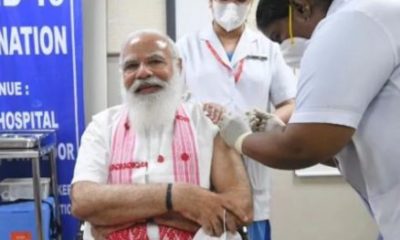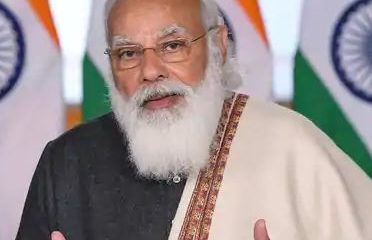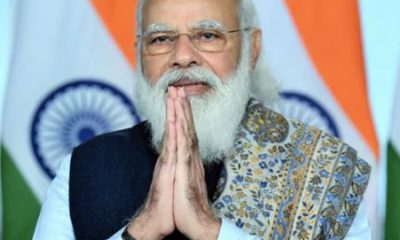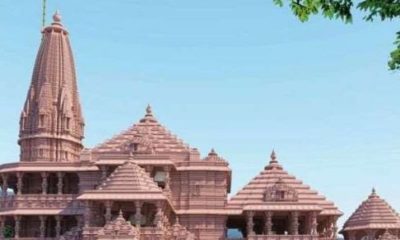Top News
India needs habitable cities before smart cities

Ever since Prime Minister Narendra Modi announced his government’s plans to create 100 smart cities, there is a rise in the clamour by chief ministers to get the tag. From Ajmer to Allahabad and from Salem to Srinagar, the list of contenders grows, even as India gives shape to a plan and an agreement on what constitutes a smart city.
Smart cities feature in Modi’s discussions with world leaders like US President Barrack Obama to Infosys’ chief Vishal Sikka. The union ministries for urban development, information technology and telecom are engaged in getting inputs on best practices around the world on how to fix infrastructure issues. Even though bigger issues like air quality, suspended particulate matter and, above all, the safety of women continue to make headlines, they seem to be low down in the priority list for smart cities.
Air pollution in India’s capital New Delhi, among the worst in the world, is threatening to reduce lifespans of its citizens by three years. And it comes as no surprise that in a global survey, ‘Mercer 2015 Quality of Living Rankings’, which examines the quality of living in over 230 cities around the world, not one Indian city features among the top 135. The Mercer report notes that the rise in population has multiplied the existing problems of Mumbai (152) and Delhi (154), including access to clean water, air pollution and traffic congestion.
Austrian capital Vienna, that prides itself with over half its area under green cover, tops the list of most livable cities in the world. At 25, Singapore is the best in Asia.
Green, clean and safe before smart
Isn’t it time that India took a look at making its existing cities habitable – ones that offer a green, clean and safe living environment to its inhabitants? We need a plan for metros and mini-metros so as to stem population rise, offer a seamless and effective public transport system that discourages commuting in personal vehicles and ultimately leads to acceptable pollution levels.
Over a billion Indians expect uninterrupted clean water and electricity supply, a drainage system that works and a mobile and broadband network system that lets them communicate.
Reports of Delhi Development Authority making a part of the national capital a smart sub-city, in three years, brings up visions of more concrete monstrosities – a la Nehru Place, Bhikaji Cama Place or even a Hudco Place or a Pragati Vihar.
Delhi has a rich heritage that needs to be protected, preserved and should gain World Heritage status even if it means sacrificing additional built-up area in Lutyen’s Delhi. Its citizens want suspended particulate matter in the air to go down, its safety track record on the roads to improve and its women to feel safe through better policing.
A WHO study shows 13 of the 20 most polluted cities in the world are in India, including the worst-ranked Delhi. India has the highest death rate caused by chronic respiratory diseases in the world. By focussing on just the brick and mortar smart cities, India could well ignore the health consequences of air pollution.
Build an Efficient Public Transport System
Indian cities don’t have the best and the widest roads. Yet India adds over 5,000 cars a day to its city roads adding to pollution, congestion and long commute time to work and back. An efficient transport system in the top 100 cities, with a smart travel card allowing people to move seamlessly between buses, Metros and shuttle services, may be the answer.
We also need to build roads that are pedestrian-friendly and cycle-friendly, just as Vienna and many other European countries have, where differently-abled and the wheelchair borne are not disadvantaged. We need pothole-free levelled sidewalks that help smooth and safe travel for pedestrians before we get smart cities.
Moving jobs to cities where talent exists
To stop migration of the rural population to the metros, India needs to create job opportunities closer to the talent. There are enough towns with population between 200,000 and two million offering access to good education as well as skills. We have examples of IT and BPO firms choosing cities like Jaipur, Indore, Nashik, Mysore and Visakhapatnam over established technology hubs like Delhi’s National Capital Region (NCR), Bengaluru, Chennai and Mumbai. At a recent Asia BPO Summit 2014-15, Teleperformance India was awarded for its path-defining strategy of moving away from the metros.
What began as a move by the $3.66 billion BPO leader to be closer to the source of talent turned out to be a win-win as it set up operations in Indore and Jaipur eight years ago. Even when these cities follow a six-day routine, the employees spend less time out of home due to a much shorter commute time and get to work fresh compared to their counterparts in metro locations. A six-day schedule rewards customers with higher productivity. To top it all, India’s competitive advantage in the global market gets better.
This presents an opportunity to locate several manufacturing units under the Make in India policy and services businesses in cities and towns that are not bursting at their seams and are, therefore, a better candidate for building smart cities.
India needs more habitable cities that show strong commitment to sustainability before we get the smart cities.
Top News
Dr. Abhishek Verma Dedicates a Shelter in Memory of His Mother, Veena Verma, at KGMU; Inaugurated by Daughter Nicolle Verma

World-renowned business tycoon Dr. Abhishek Verma has supported Foodman Vishal Singh’s Hunger-Free World mission. In memory of his mother, Late Veena Verma, who was a 3 term Rajya Sabha MP.
Dr. Verma dedicated a state-of-the-art free permanent shelter for the attendants of patients at KGMU Medical University, Lucknow, under the aegis of Vijay Shree Foundation. His daughter, Nicolle Verma, inaugurated the shelter.

During the event, Foodman Vishal Singh honored Nicolle Verma by presenting her with a memento. Mrs. Nidhi Sharma and Avantika Yadav, associated with the organization, welcomed her with garlands. Following this, Nicolle Verma distributed essential items to the attendants and also handed out fruits. She became emotional remembering her grandmother on her birth anniversary.
On this occasion, she also inaugurated the “Veena Verma Sevalaya” in memory of her grandmother, Veena Verma, to serve the attendants. She expressed, “I feel proud that my family is engaged in nation-building as well as social service. Today, in collaboration with Vijay Shree Foundation founder Foodman Vishal Singh Ji, I feel immensely proud to dedicate this shelter for the poor, helpless, and needy attendants of patients battling serious illnesses like cancer. I am honored to be associated with the Hunger-Free World Mission for humanity.”

Inspired by the continuous humanitarian service provided by Vijay Shree Foundation over the past 17 years, Nicolle Verma donated 10 lakh rupees to support the cause. The purpose of this donation is to ensure that services continue for the needy attendants of patients suffering from severe illnesses in hospitals, as facilitated by Foodman Vishal Singh.
It is noteworthy that Dr. Abhishek Verma’s family has a legacy of public and philanthropic service. They are helping millions to carry forward the values and service work of their parents. On the occasion of his mother’s birth anniversary, Dr. Abhishek Verma dedicated this state-of-the-art permanent shelter at Lucknow Medical College to serve the attendants of patients through the Vijay Shree Foundation.

Supporting Foodman Vishal Singh’s Hunger-Free World mission, Dr. Abhishek Verma assured that he would continually support keeping this flame of humanity alive. He also promised to assist in providing medicines to the helpless patients.
Continuing her grandmother’s legacy of service, Nicolle Verma personally served food to the needy patients and attendants. She said, “It is our good fortune to have received the joy of doing this noble work today through Foodman Vishal Singh. I have taken another step forward in carrying my family’s values and cooperation by joining hands with the Vijay Shree Foundation. My father taught me to serve and help the needy, and I feel happy when I bring a smile to someone’s face.”

On the birth anniversary of the late Veena Verma, the event organizer, Vijay Shree Foundation founder Foodman Vishal Singh, said, “We feel proud and happy that Dr. Abhishek Verma, a globally renowned business tycoon, has extended his support to uplift our country from the hunger index. Today, on his mother’s birth anniversary, he inaugurated a state-of-the-art permanent shelter at Lucknow Medical College, which will always be helpful for the needy attendants of patients. It is a pleasure for me and the organization to receive the affection of Mr. Verma.”
The event was attended by General Manager Verma Family Office Hemant Garg, Sonu Rajput, and the organization’s volunteers, including Sandeep Singh, Parmeshwar Ji, Prashant Rao Gautam, Balram Singh, Ramesh Chaudhary, Suman, Jeetu, Anil, Suraj, Vinay, Manish Bhadauria, Manas Mehrotra, Vivek, Apurv, Happy, and others.





















